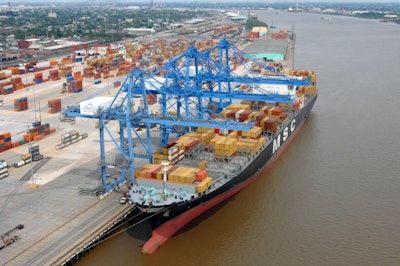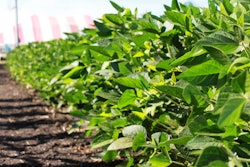
World Trade Organization (WTO) Ruling Favors U.S. Over China
The United States won a World Trade Organization ruling on China's price support for grains, successfully challenging a calculation methodology that is also used by India. A WTO adjudication panel agreed on Thursday with the U.S. complaint that China had paid domestic farmers too much for wheat, Indica rice and Japonica rice in 2012-2015.
The U.S. trade representative's office filed the complaint in September 2016, saying China had paid farmers nearly $100 billion more than allowed by the WTO rules. That provided an artificial incentive for farmers to produce more, lowering prices worldwide.
U.S. Trade Representative Robert Lighthizer said “China's excessive support limits opportunities for U.S. farmers to export their world-class products to China," adding “[that] we expect China to quickly come into compliance with its WTO obligations.”
China argued that it was not breaching that limit because only the grains procured by government should be counted as subsidized. The United States successfully argued that state buying at a guaranteed price raised the whole market.
China's WTO membership agreement permits trade-distorting subsidies of up to 8.5% of the total value of production.
How Does This Impact the U.S. Farmer? Chalk this decision by the WTO as win for the U.S. farmer. And the win could not have come at a better time. With the WTO ruling that the subsidy level paid was too high could be used a leverage by the U.S. in the ongoing trade negotiations to promote U.S. market access. A similar dispute was made for corn but was dropped because time had expired. Expect further action by the U.S. against India for unfairly subsidizing pulses.
U.S. Export News Summary
Wheat: Saudi Grains Organization (SAGO), Saudi Arabia's state grain buyer, said it is seeking to buy 595,000 tonnes of hard milling wheat in an international purchasing tender. The wheat should be of 12.5% protein content and is for delivery during April to June, a statement by SAGO said. The tender deadline is Friday, March 1.
Wheat: Iraq's trade ministry is seeking at least 50,000 tonnes of wheat in an international purchasing tender, a ministry source said. The deadline for offers is March 4 and they should remain valid until March 10, the source said. Iraq is seeking wheat of U.S., Australian or Canadian origin.
Corn: The Korea Feed Association (KFA) purchased about 128,000 tonnes of corn to be sourced from optional origins in a tender that closed on Thursday. The corn was bought by the KFA's Busan section in two consignments. The first, expected to be sourced from the United States or South America, was purchased at $204.99 a tonne c&f for arrival around July 20, plus a $1 a tonne surcharge for additional port unloading.
The U.S. Department of Agriculture said private exporters sold 168,000 tonnes of U.S. corn to South Korea and another 133,000 tonnes to Mexico for delivery during the current marketing year.
How Does This Impact the U.S. Farmer? The corn sales to South Korea are positive and the volume to Mexico is encouraging. However it’s important to remember that President Trump’s renegotiation of NAFTA provides the U.S. virtually unfettered access to the Mexican corn market making the Mexican volume almost a norm. Hopefully the decline in the wheat futures will make both SRW and HRW competitive into to Iraq over other origins, France and Black Sea.
The risk of trading futures, hedging, and speculating can be substantial. FBN BR LLC (NFA ID: 0508695)










